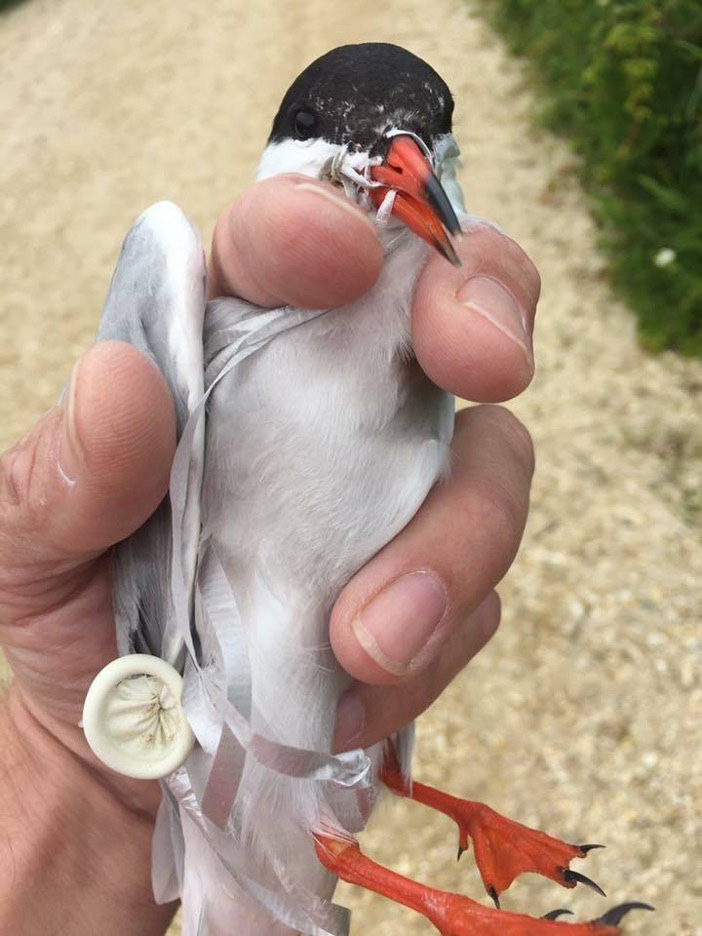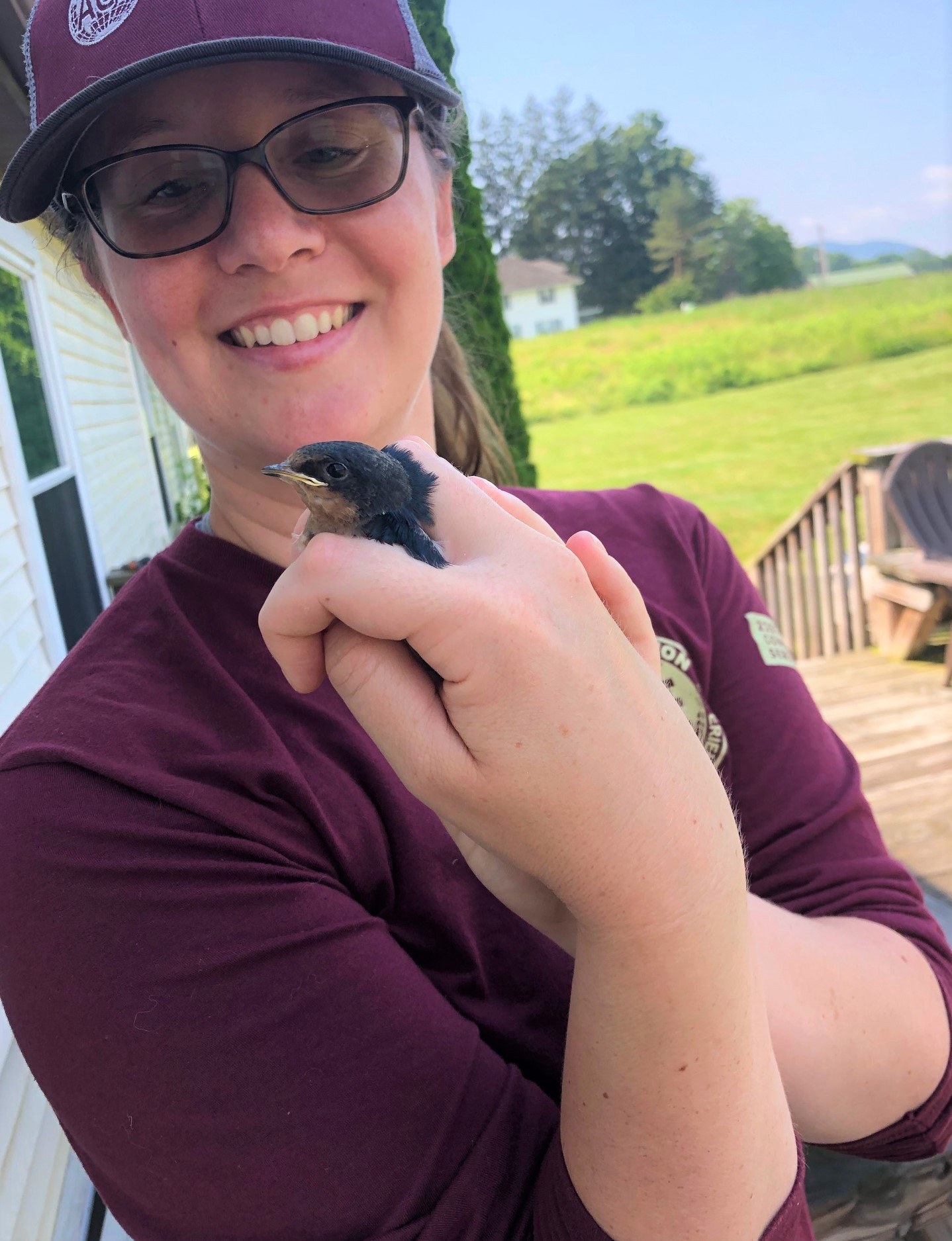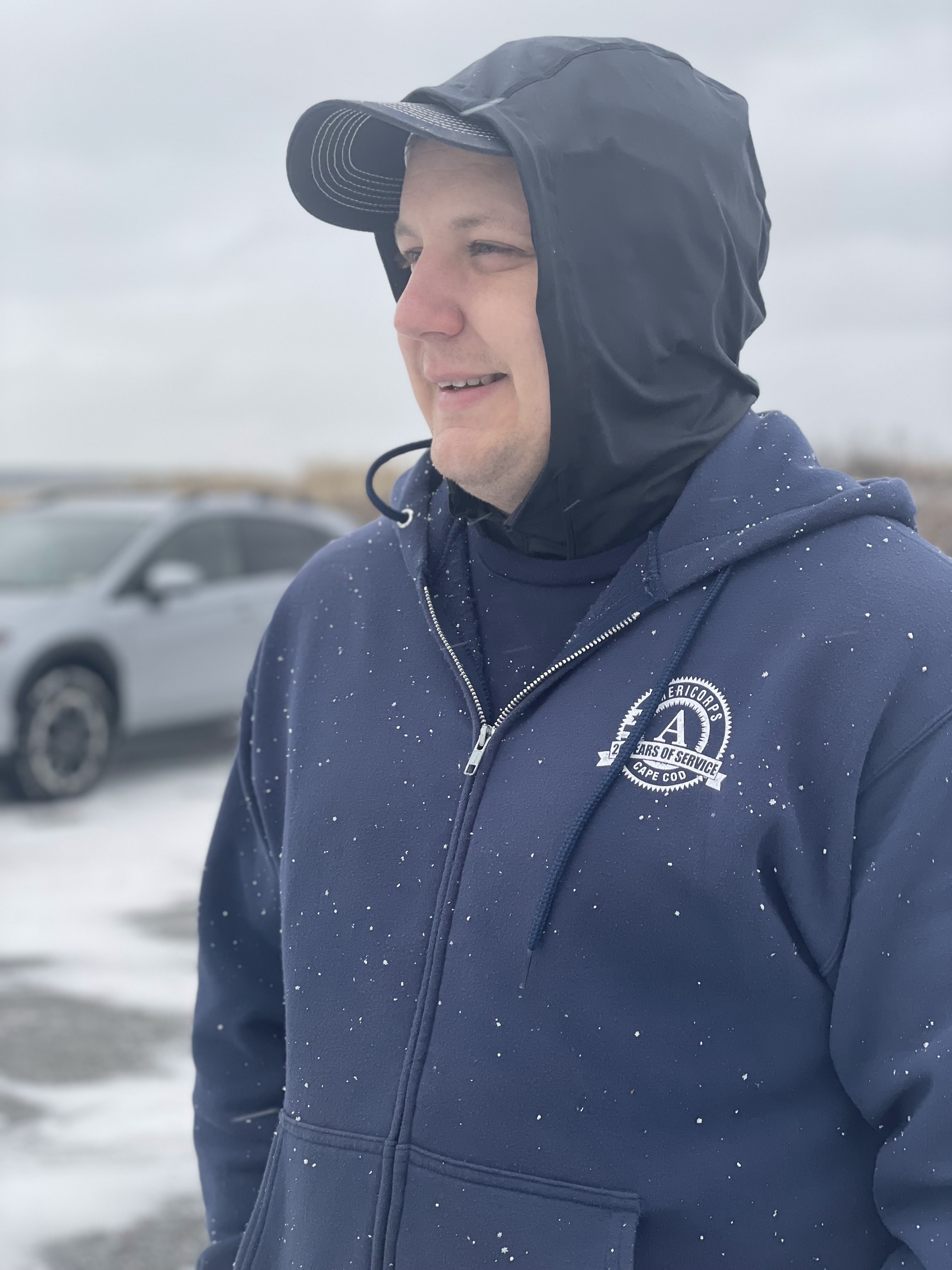Identifying and Addressing Impacts of Marine Debris on Birds in the Gulf of Maine Region
Join us to learn how marine debris is affecting birds in the Gulf of Maine.
Reservations
Required
After registering, by clicking on the box below, you will receive a confirmation email containing information about joining the program.
Location
Online
This event is handicap accessible
Marine debris has posed threats to birds around the world through entanglement and entrapment, ingestion, and degradation of nests and breeding colonies. However, such impacts remain understudied, particularly in the Gulf of Maine region (here defined as southern Atlantic Canada to Cape Cod).
In spring 2020, the U.S. Fish and Wildlife Service and NOAA Marine Debris Program initiated a project with University of Rhode Island graduate student Michael Andranovich to compile current knowledge about the impacts of marine debris on birds in the region, identify information gaps in understanding these impacts, and come up with strategies for addressing them. Results were included in a report released in February 2022. The project also involved organizing a broad regional partnership of Federal, state and provincial agencies, industry groups, non-governmental organizations and universities to develop a framework for filling information gaps and addressing known impacts. Partners committed to taking practical and manageable first steps to meet specific objectives.
Since the report and framework were released, USFWS biologist Meg Harrington has coordinated partners in undertaking some of these first steps, focusing particular attention on bird interactions with fishing and aquaculture debris. Michael and Meg will discuss project findings and highlight the importance of better understanding adverse impacts of marine debris on coastal and marine birds in Maine and beyond.
About the Presenters

Meg Harrington is a biologist with the US Fish and Wildlife Service. She works throughout New England and focuses on the conservation of several threatened and endangered species. She has a special interest in shorebirds and the impacts of marine debris on coastal habitats.
Meg graduated from the University of Massachusetts Amherst in 2021 with an MS in Environmental Conservation. Her studies focused on Human Dimensions and Policy, and she completed a thesis about the effectiveness of conservation assistance programs for woodland owners in Vermont. Meg also holds a BS in Conservation Biology from St. Lawrence University, where she studied the effects of North American porcupine herbivory on forest diversity and developed a deep appreciation for all things porcupine.
Prior to joining the US Fish and Wildlife Service, Meg worked as a field biologist for several years in NH and CA. Her favorite jobs included monitoring Common Loons, working with Snowy Plovers, propagating native plants for coastal bluff restoration, and conducting wildlife surveys in the high desert.

Michael Andranovich is currently a Program Supervisor with AmeriCorps Cape Cod in Barnstable County (MA). He oversees the team-based service projects of his members while providing support to member training and the program’s volunteer engagement activities.
Michael grew up in Milford, CT, and graduated with a B.S. in Environmental Studies (minor in Computer Science) from St. John’s University in Queens, NY. Looking to provide the greatest “boots on the ground” impact for communities at a local level, Michael joined AmeriCorps Cape Cod as a member to complete a year of service (2016-2017). Using the numerous technical tools and professional skills gained during his service year, he went on to pursue positions in environmental education, wildlife stewardship, and research assistance.
Before his current position, Michael finished his Master of Environmental Science and Management (MESM) degree from the University of Rhode Island with a concentration in Conservation Biology. During and briefly after his time in graduate school, Michael partnered with NOAA Marine Debris Program and USFWS to produce Identifying and Addressing the Impacts of Marine Debris on Birds in the Gulf of Maine Region, a report which should help policymakers and the pubic alike better understand the impacts of marine debris. In his free time, Michael enjoys playing and watching a variety of sports, or exploring the beaches of Cape Cod.
